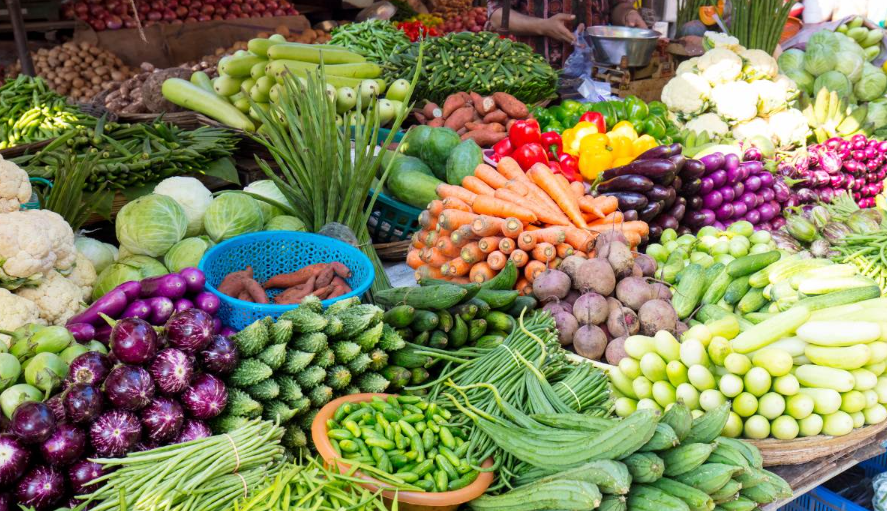Now, look at 3 real contexts where vegetables might be linked—indirectly—to cancer only when mishandled:
1. Vegetables with High Pesticide Residue
Some vegetables, especially leafy ones like kale, spinach, or gourds (like the one shown in your image), often rank high on the “Dirty Dozen” list by the Environmental Working Group (EWG). These are vegetables commonly found with high levels of pesticide residue.
Pesticides such as glyphosate and organophosphates have raised cancer concerns in long-term animal studies and some human observational research. The International Agency for Research on Cancer (IARC) has classified glyphosate as “probably carcinogenic to humans” (Group 2A).
🔹 Prevention Tip:
Wash all vegetables thoroughly. Choose organic produce for high-risk items. Peeling certain vegetables or soaking them in salt or baking soda water may reduce residue.
2. Pickled or Preserved Vegetables (in Excess)
In some Asian diets, pickled vegetables are a staple. Yet, long-term consumption of heavily salted, fermented, or preserved vegetables has been linked to a higher incidence of stomach cancer, particularly in East Asian countries like Korea and Japan.
According to studies, the high salt content may damage the stomach lining, and nitrosamines (formed during the pickling process) may be carcinogenic.
🔹 Prevention Tip:
Occasional consumption is fine, yet please avoid overconsumption of heavily salted pickles, especially homemade ones stored improperly. Always refrigerate pickled vegetables and consume within a safe timeframe.
3. Rotten or Moldy Vegetables
Improperly stored vegetables, especially those kept in humid environments, can grow mycotoxins—naturally occurring toxins produced by certain molds. One of the most dangerous is aflatoxin, commonly found in moldy peanuts or corn, but it can also grow on spoiled vegetables.
Aflatoxins are strongly associated with liver ca.nc.er, especially in regions where food storage standards are poor.
🔹 Prevention Tip:
Never consume vegetables that are moldy, slimy, or emit a foul odor. Even cutting off the visibly moldy part may not be enough, since toxins can spread invisibly.
What About Bitter Vegetables Like Gourd Shoots?

The vegetable in your image seems to be bitter gourd shoots or vines (from the Momordica charantia plant), commonly consumed in many Asian countries. These are not inherently carcinogenic.
Nevertheless, bitter vegetables like gourd or zucchini may sometimes turn excessively bitter due to high levels of cucurbitacins, which are toxic in large amounts. Though rare, consuming extremely bitter gourds can cause nausea, vomiting, or even poisoning. There’s no evidence, however, linking them directly to cancer.
🔹 Prevention Tip:

